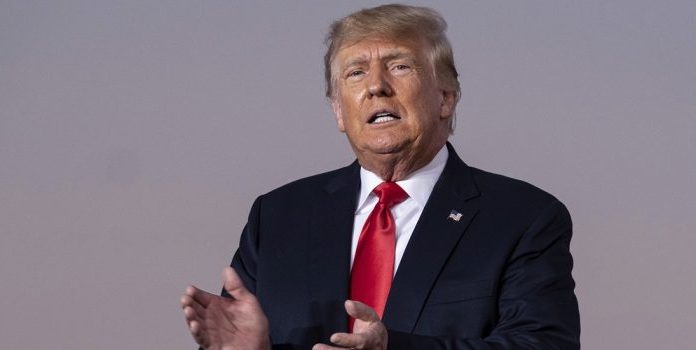(Headline USA) Former President Donald Trump confirmed in a recent interview that he wants to take on the deep state, arguing that the D.C. swamp is made up of back-stabbing bureaucrats whom you’d least suspect.
“Look, there is a deep state,” Trump told conservative talkshow host Dan Bongino. “There is a group of people that are not doing a very good job for the country.”
Trump was asked specifically about an Axios report about how he plans to fire more than 50,000 federal employees if he runs for office again in 2024 and wins. Trump said the report was “strange,” but added he doesn’t think the idea of cleaning out the bureaucracy is “bad.”
While he was president, officials would “slow walk things” while telling him they were working to complete whatever task was assigned to them, he said. And oftentimes the people working against his agenda were those “who you would least suspect.” It was like “hitting your head against a wall,” he said.
He stressed that he had “great people” in his administration, and blamed the “bad ones” on poor recommendations from “RINOs.”
Axios revealed that Trump’s team has been working on a project called “Creating Schedule F in the Excepted Service,” which began with an executive order Trump signed toward the end of his administration, establishing a new employment category for federal employees.
“Schedule F” would allow Trump to reassign tens of thousands of civil servants with influence over policy as “Schedule F” employees. Upon reassignment, they would lose the government employment protections that make it extremely difficult to fire them.
“An initial estimate by the Trump official who came up with Schedule F found it could apply to as many as 50,000 federal workers—a fraction of a workforce of more than 2 million, but a segment with a profound role in shaping American life,” Axios reported.
This would allow Trump to fire career government officials who do not share his agenda, including woke military generals, bureaucrats and other government aides—all of whom actively worked against him during his first term.

